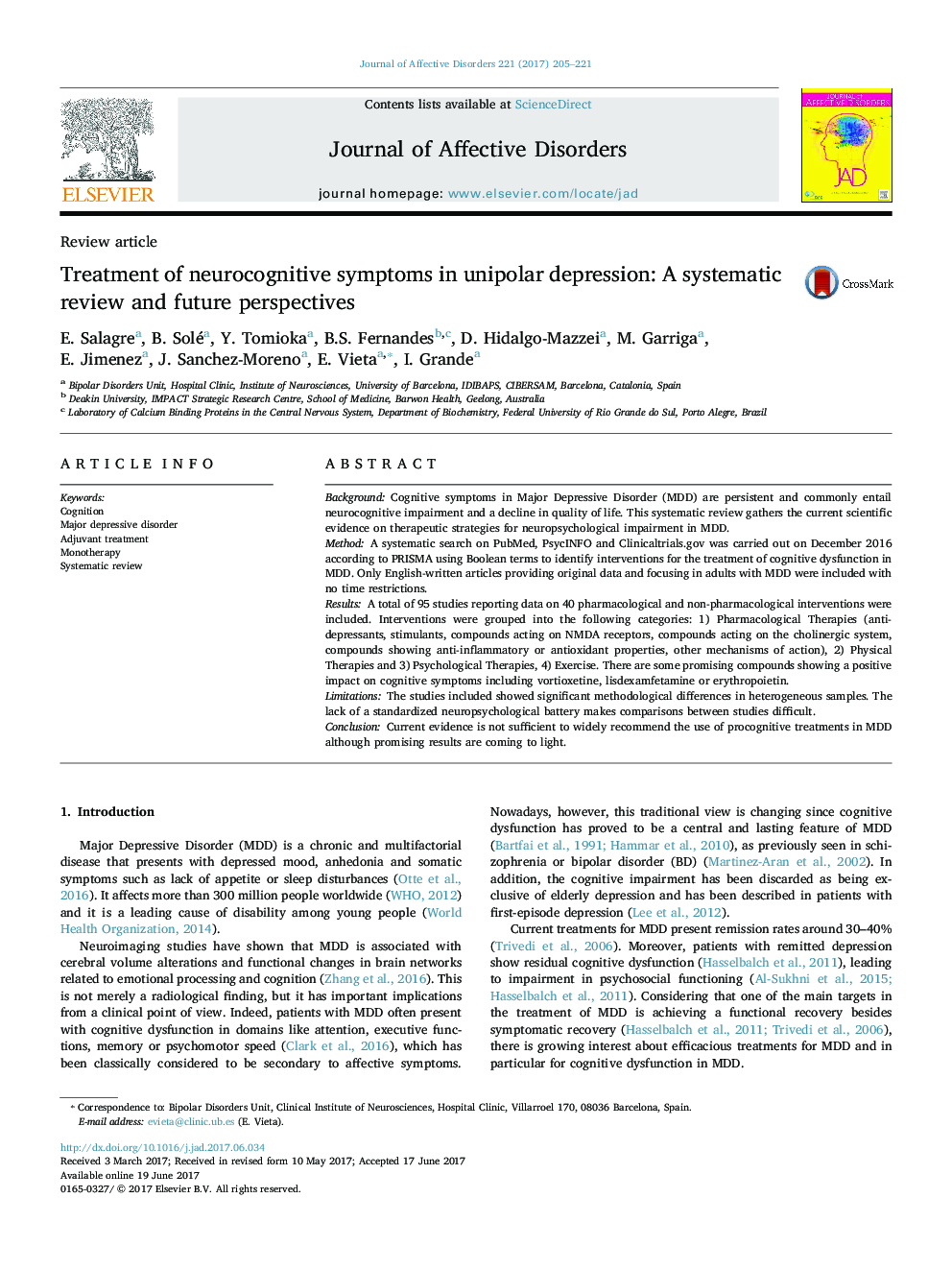| کد مقاله | کد نشریه | سال انتشار | مقاله انگلیسی | نسخه تمام متن |
|---|---|---|---|---|
| 5722009 | 1608104 | 2017 | 17 صفحه PDF | دانلود رایگان |
- Cognitive dysfunction in major depressive disorder (MDD) is becoming a major concern.
- We reviewed a broad number of interventions targeting cognitive symptoms of MDD.
- Agents focusing on the glutamate system and neuroinflammation are being tested.
- There are some promising pharmacological, physical and psychological therapies.
- To date, there is no compelling data to draw any firm conclusion on this issue.
BackgroundCognitive symptoms in Major Depressive Disorder (MDD) are persistent and commonly entail neurocognitive impairment and a decline in quality of life. This systematic review gathers the current scientific evidence on therapeutic strategies for neuropsychological impairment in MDD.MethodA systematic search on PubMed, PsycINFO and Clinicaltrials.gov was carried out on December 2016 according to PRISMA using Boolean terms to identify interventions for the treatment of cognitive dysfunction in MDD. Only English-written articles providing original data and focusing in adults with MDD were included with no time restrictions.ResultsA total of 95 studies reporting data on 40 pharmacological and non-pharmacological interventions were included. Interventions were grouped into the following categories: 1) Pharmacological Therapies (antidepressants, stimulants, compounds acting on NMDA receptors, compounds acting on the cholinergic system, compounds showing anti-inflammatory or antioxidant properties, other mechanisms of action), 2) Physical Therapies and 3) Psychological Therapies, 4) Exercise. There are some promising compounds showing a positive impact on cognitive symptoms including vortioxetine, lisdexamfetamine or erythropoietin.LimitationsThe studies included showed significant methodological differences in heterogeneous samples. The lack of a standardized neuropsychological battery makes comparisons between studies difficult.ConclusionCurrent evidence is not sufficient to widely recommend the use of procognitive treatments in MDD although promising results are coming to light.
Journal: Journal of Affective Disorders - Volume 221, 15 October 2017, Pages 205-221
